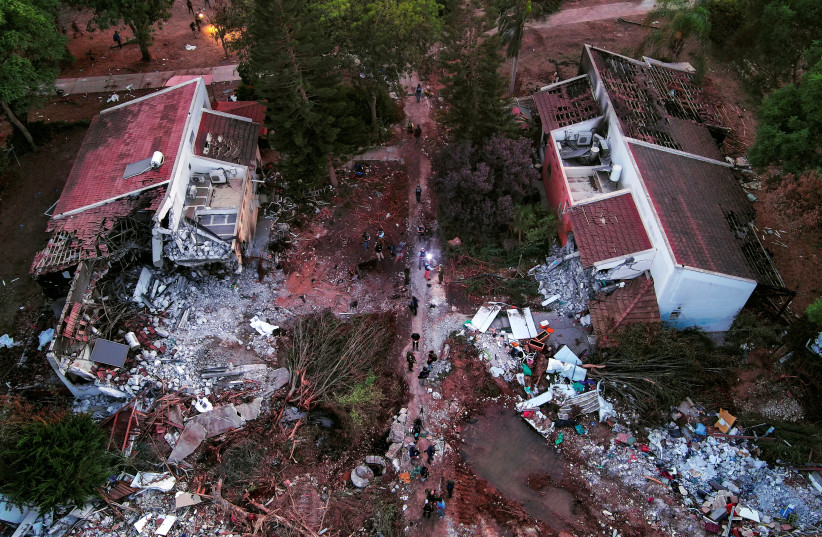Prime Minister Benjamin Netanyahu appeared to apologize for Israeli security failures that allowed for the Hamas-led invasion of Israel on October 7, in an interview published Thursday in Time Magazine.
He clarified that he planned to continue to safeguard the country and did not intend to step down from office.
“Apologize?” Netanyahu asked when pressed on the issue by Time.
“Of course, of course. I am sorry, deeply, that something like this happened,” he said as he expressed regret for the event and spoke globally about how the country could have responded better without seeming to take responsibility for the failures that led to it.
“You always look back, and you say, Could we have done things that would have prevented it?”

Another solution
The interview itself included multiple additional sources and took a broad look and Israel’s longest-serving Prime Minister that also captured the magazine’s cover page, with a headline that stated, “Bibi at War.”
The underline linked his political crises with that of the nation’s military ones, stating: “Benjamin Netanyahu on Israel’s historic crisis — and his own.”
Running through the article were questions of Netanyahu’s successes and failures, giving the Prime Minister a platform by which to more thoughtfully reflect on the war.
When it came to mistakes, Netanyahu said he had failed to question the emphasis security officials placed on the success of their policy of deterrence, in which they theorized that Hamas feared Israel’s destructive military abilities and therefore would not launch a full-scale attack.
“Oct. 7 showed that those who said that Hamas was deterred were wrong,” Netanyahu said. “If anything, I didn’t challenge enough the assumption [of deterrence] that was common to all the security agencies.”
In selecting the question of whether Israel should have sought to totally destroy Hamas during the 2014 war, Netanyahu stated: “There was no domestic support for such an action” He added, “There was certainly no international support for such an action—and you need both.”
Netanyahu also appeared to cast part of the blame for October 7 on those who in the first part of 2023 had threatened not to serve in the army as a protest statement against his judicial reform plan.
“The refusal to serve because of an internal political debate—I think that, if anything, that had an effect.”
Netanyahu appeared to dismiss claims that his policy of sending cash to Hamas with the help of Qatar had helped set the stage for October 7, explaining that Israel’s motivation had been humanitarian.
He was referring to the argument that the cash would be used for humanitarian services that would help Hamas then quell social unrest in Gaza and thus, in gratitude to Israel, would be more amenable to reframing from rocket attacks.
“We wanted to make sure that Gaza has a functioning civilian administration to avoid humanitarian collapse,” he told Time, as he rejected claims that those funds played a significant role in helping Hamas entrench itself military in Gaza or prepare for October 7.
“The main issue was the transfer of weapons and ammunition from the Sinai into Gaza,” he told Times, as he referenced the tunnels through which weapons were smuggled from Egypt to Gaza.
When it comes to events during the war, Netanyahu dismissed accusation that the IDF’s attacks on Gaza were collective punishment against the Palestinian people many of whom were displaced as a result of the ten months of conflict.
“We’ve gone out of our way to enable humanitarian assistance since the beginning of the war,” Netanyahu said.
During the interview he described Israel’s multi-front war against Iran and its proxies, stating, ““We’re facing not merely Hamas,” Netanyahu says. “We’re facing a full-fledged Iranian axis, and we understand that we have to organize ourselves for broader defense.”
He rejected claims that the war had created a crisis with Democrats and the left-leaning public in the United States.
“I don’t think that the much reported erosion of support among some quarters of the American public is related to Israel,” Netanyahu said. “It’s more related to America.”
He repeated his vague vision of what would happen in Gaza the day after IDF had vanquished Hamas in Gaza, explaining that he would turn to Arab countries to help institute a a civilian Palestinian governing entity that would not threaten Israel.

